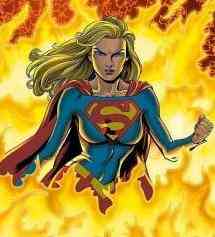
I was a political science major for about a minute when I first started
college 20 years ago now. One of the assignments I remember was the development of an essay comparing and contrasting John Locke's
Two Treatises on Government to Jean-Jacques Rousseau's
The Social Contract. In my early polemic days I believed that Locke's theory was that humans are essentially good and Rousseau's theory was that humans are essentially bad.
That's not really the gist of their work, and this isn't really a post about Locke and Rousseau.
This IS a post about whether or not humans are essentially good or essentially bad. And I tend to agree with Rousseau's belief that humans are corrupted by society but good when left to their own devices. So, apparently does the European Union which has been experimenting with the elimination of traffic signs in seven towns over the last two years. The basic rationale is this: traffic signs prevent people from taking personal responsibility for civility on the road, and in fact may cause people to try to game the system and therefore drive recklessly. And, by all
reports, it seems to be working. Or at least it isn't hurting.
BMG and I are in agreement that more people need to take more responsibility for their decisions. Blaming McDonald's for making you fat, blaming your parents for not teaching you how to fasten a pair of button fly jeans, and blaming mortgage companies for giving you a loan you cannot pay all indicate some level of irresponsibility when it is likely that all sides of every blame story could take more responsibility for acting in what the state of Montana calls a "safe and prudent" manner.
Which brings me to the point where BMG and I disagree. At least when it comes to Americans. I reminded him, during our discussion, that the state of Montana for a brief period had NO speed limit, and for several years had no daytime speed limit. All they had was an admonition that drivers use speeds deemed "safe and prudent" for conditions. And guess what? Average driver speeds went up, and so did traffic fatalities. Eliminating speed limits in Montana did not restore civility but rather sanctioned recklessness behind the wheel.
Driving can sometimes lead me to feel incensed because it reveals the most selfish impulses of most people (myself included). I long for a society in which it is universally understood that pulling over for an emergency response vehicle is the polite and important thing to do. Whoever is in that ambulance is in a greater rush than you. I long for a society where our reaction when we hear a gentle beep in our direction isn't an avalanche of expletives, but rather an apology for making a mistake. I'm with Rousseau on this one. Humans are corrupted by society, and it seems even more so in the great 'ol US of A. I don't trust my fellow men and women to honor the social contract. In fact, I don't believe most people even know what the social contract is. This is the crux of why I created Smart Town - to imagine a place where everyone knows and respects the social contract, where the golden rule is the prevailing rule of law, and where the needs of others are as important as the needs of oneself. I may have just moved to Hing Ham, but I long for Smart Town, where our Mayor is John Locke and we have no street signs. Hope to see you there!


 I was a political science major for about a minute when I first started college 20 years ago now. One of the assignments I remember was the development of an essay comparing and contrasting John Locke's Two Treatises on Government to Jean-Jacques Rousseau's The Social Contract. In my early polemic days I believed that Locke's theory was that humans are essentially good and Rousseau's theory was that humans are essentially bad.
I was a political science major for about a minute when I first started college 20 years ago now. One of the assignments I remember was the development of an essay comparing and contrasting John Locke's Two Treatises on Government to Jean-Jacques Rousseau's The Social Contract. In my early polemic days I believed that Locke's theory was that humans are essentially good and Rousseau's theory was that humans are essentially bad.  Oh, dear GPA! I am so grateful to you for sharing the funny Cake Wreck blog. I now share it with all of you. My only advice is to use the bathroom before you read this because you may end up wetting your pants because of the uncontrollable laughter.
Oh, dear GPA! I am so grateful to you for sharing the funny Cake Wreck blog. I now share it with all of you. My only advice is to use the bathroom before you read this because you may end up wetting your pants because of the uncontrollable laughter.
